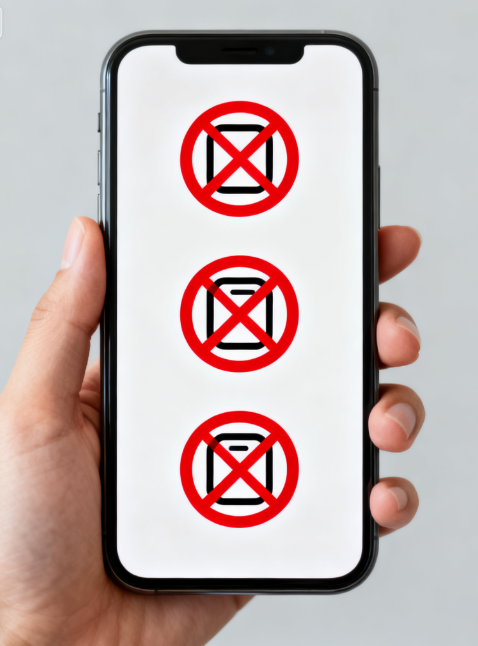
In the modern landscape of love and commitment, trust is no longer just a feeling; it’s a digital footprint. We often look for grand gestures and heartfelt promises as proof of fidelity, but sometimes, the most telling clues are hidden in plain sight—on the home screen of a phone.
While privacy is a sacred right in any healthy relationship, a pattern of secrecy can be a red flag. It’s a common misconception that infidelity always begins in seedy hotels or with clandestine meetings. More often, it starts with a simple download. A digital door is propped open, and temptation quietly walks in.
Based on patterns observed in relationship counseling and modern digital behavior, a person who is truly faithful and fully present in their relationship will typically never have these three specific types of apps on their phone.
1. The “Second Calculator” or “Vault” App That’s Actually a Photo Hider.
You’ve seen it: a perfectly normal-looking calculator app sitting on their phone. But when you type in a specific passcode or press a sequence of buttons, it doesn’t open a calculator. Instead, it unlocks a secret gallery of photos, videos, and messages.
- Why a Faithful Partner Doesn’t Need It: A faithful person has no need for a parallel, hidden digital life. Their photo gallery might be filled with silly selfies, pictures of you, memes you’ve sent each other, and screenshots of recipes. There is no album that requires a decoy app to keep it from the person they love. The very existence of such an app indicates a conscious, premeditated effort to hide specific content. It’s not about privacy, which is the right to have personal thoughts; it’s about secrecy, which is the act of intentionally concealing something that would damage the relationship if discovered.
2. The “Disappearing Message” App as a Primary Form of Communication (Outside of Work).
Apps like Telegram, Snapchat, or Signal offer “disappearing message” features. While these have legitimate uses for journalists, activists, or even for coordinating a surprise party, their function is to leave no trace.
- Why a Faithful Partner Doesn’t Rely On It: A committed person communicates on platforms that create a record. They text you on iMessage or WhatsApp, they send you emails, they tag you in posts. Their communication is out in the open, not designed to self-destruct. If their primary, day-to-day conversations with a “friend” or “colleague” are happening on an app that automatically deletes every message, it’s a major red flag. It creates a space for conversations that are, by design, intended to be unaccountable and untraceable, which is the antithesis of transparency in a loving partnership.
3. A Dating or “Social Discovery” App (That Isn’t for You).
This one seems obvious, but it’s the context that matters. Perhaps they claim they “never deleted it” from their single days, or they say it’s “just for networking” or “to meet new friends.”
- Why a Faithful Partner Has Deleted It: A person who is truly fulfilled in their relationship has no psychic or emotional space for browsing dating profiles. Keeping a dating app “just to see” or “out of curiosity” is like keeping your ex’s love letters in a drawer beside your bed. It signifies that a door, however small, has been intentionally left open. The act of swiping, even idly, is an act of looking for something—attention, validation, or an option—that exists outside of your committed relationship. A faithful person closes that door, locks it, and throws away the key, because they have found everything they are looking for in you.
The Important Caveat: Trust is the True Operating System
Before you grab your partner’s phone and start a forensic investigation, it’s crucial to remember this: the absence of these apps does not automatically guarantee fidelity, and their presence does not always equal guilt. Some people are intensely private about their phone for reasons that have nothing to do with infidelity.
The real issue isn’t the apps themselves; it’s the behavior and intention behind them.
A truly faithful partner operates from a place of transparency, not because they are being monitored, but because they have nothing to hide. Their digital life is an extension of their real life—open, integrated, and shared with you. The most important app on their phone is the one they use to call you, to text you good morning, and to share the mundane details of their day. That is the only platform that truly matters.
In the end, trust isn’t found in a background check of someone’s app folder. It’s built in the daily, conscious choice two people make to be open, honest, and fully present with one another, both in person and online.